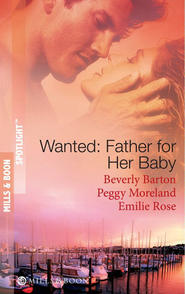По всем вопросам обращайтесь на: info@litportal.ru
(©) 2003-2024.
✖
Time of Death
Автор
Год написания книги
2018
Настройки чтения
Размер шрифта
Высота строк
Поля
They had been married for a year, had a decent apartment, managed to survive on one paycheck, and were doing their best to be good parents. He adored Jenny and Jessy. Who wouldn’t? They were seven-year-old replicas of their mom. And they were calling him Daddy now. Their own father never had been a part of their lives.
Charlie sat down at the small kitchen table, ripped open the breakfast bar, took a bite, and then washed it down with coffee. When he had lost his job in December, he had believed that was the worst thing that could happen to him, but he’d been wrong. In early January, he had received the first letter. He had dismissed it as nothing more than a stupid prank and threw the letter away. Then the second letter, identical to the first, had arrived in February, right before Valentine’s Day. Even though that one had unnerved him, he had torn it up and tossed it in the garbage. As far as he knew, he didn’t have any enemies who hated him enough to want to see him dead.
Then Saturday, the third letter had arrived, another word-for-word replica of letter number two. He knew the message by heart.
Midnight is coming. Say your prayers. Ask for forgiveness. Get your affairs in order. You’re on the list. Be prepared. You don’t know when it will be your turn. Will you be the next to die?
For the past couple of days, he’d been thinking about what he should do. Lily had enough on her mind with her job as a waitress, the two girls, and their barely having enough money to make ends meet. The last thing she needed was to find out that someone was sending her husband death threats. If he went to the police, what could they do? Not a damn thing. And what could he do? He had no idea who had sent the letters. Even when he had ended up in the gutter—literally—a few years back, he hadn’t encountered anyone who’d want to kill him. All he could do was watch his back, be careful, and not take any chances. And as far as he knew, Lily and the girls were safe. The letters had not mentioned his wife and kids, so he hoped that meant that only he was in danger. But from whom? And why?
Maleah would have preferred dealing directly with Nic, but that wasn’t an option right now and she needed permission to take Lorie Hammonds’s case and use the Powell Agency’s resources to investigate. That meant contacting Sanders in order to get his approval. When she had called Griffin’s Rest earlier today, she had spoken to Barbara Jean.
“He’s in a meeting with a potential client. I’ll have him call you as soon as possible.”
That had been two and a half hours ago. If Nic had been there, she wouldn’t have kept Maleah waiting. But she and Sanders were not close friends, simply coworkers at the agency. It wasn’t that she disliked Sanders. Quite the contrary was true. She liked and respected Griff’s right-hand man, but she found his formal manners and his military bearing if not exactly intimidating then at the very least forbidding. From the first time she had taken her turn as head of security at Griffin’s Rest, a position that routinely rotated among agents, she had thought it odd and at the same time rather endearing that the solemn, austere Sanders and the sweet, gregarious Barbara Jean were a couple. It was obvious to everyone that she adored him and that he, in his own way, cared deeply for her.
It wasn’t until she and Nic had become close friends that Nic told her Sanders had, years ago, lost his wife and child. If Nic had known the particulars of the tragedy, she had not seen fit to share the information with Maleah. Sanders himself was as secretive about his past, if not more so, than Griff was; but Barbara Jean was an open book. Everyone who knew her knew she had been paralyzed in a devastating car accident and after many surgeries and years of physical therapy, she had been left a paraplegic. She considered herself lucky to have survived and found joy in her life every day. The topic she chose not to discuss, but that everyone at Powell’s was aware of, was the fact that her younger sister had been one of the many victims of the Beauty Queen Killer, who had also murdered the first wife of one of Griff’s best friends, Judd Walker.
Maleah was deep in thought—remembering the last time she had seen the Walkers, Judd and his new wife and their two young daughters—when the phone rang. She recognized the number immediately. Griffin’s Rest.
“Hello.”
“I received your message,” Sanders said.
“Then you know that I called to get your okay to take on a new client.”
“Lorie Hammonds is a friend of your brother’s wife. Is that correct?”
“Yes, Lorie and Cathy are best friends.”
“And Ms. Hammonds has received two letters threatening her life?”
“Yes.”
“Have you notified the local authorities?”
“I have. I personally spoke to Sheriff Mike Birkett last night.”
“And you believe that the situation warrants the Powell Agency becoming involved.”
“Yes. Pro bono. Ms. Hammonds is not a rich woman.”
“I see.”
Maleah could tell by the tone of Sanders’s voice that he was actually considering denying her request. “Look, I’m on vacation, but if you’ll give me an okay to take Lorie on as a client, I’ll work without pay for the duration of my time off from the agency.”
Silence.
Damn it, say something. But when he remained silent, she knew he was thinking about her proposition.
“Agreed,” Sanders told her. “You took time off to stay in Dunmore for two weeks, on a paid vacation. Use that time to begin the investigation, and if when your vacation comes to an end you have found evidence that Ms. Hammonds’s life is in danger, then Powell’s will pick up the tab for continuing the investigation.”
She breathed a quiet sigh of relief. “Thank you. I assume this means that the agency’s resources are at my disposal?”
“Certainly. However, unless you can show me the necessity of additional agents becoming involved—”
“I don’t think Lorie needs a personal bodyguard at this point, but if she does, I’ll handle it.”
“Then feel free to proceed. And if while Griffin and Nicole are away, you require anything else, simply let me know.”
“Yes, thanks. I will.”
“Good day, Maleah,” Sanders said, ever the courteous if somewhat stern gentleman.
Lorie had changed clothes four times that morning. The routine of bathing, doing her hair, applying makeup, and dressing usually took about an hour, less if she hurried. But today it had taken her two hours. When she had put on the first outfit and checked herself in the mirror, all she had seen was how large her breasts looked in the clingy yellow cashmere sweater, a Christmas present from Cathy and Jack this past year. She certainly didn’t want Mike to accuse her of using her sexuality to gain attention or, God forbid, to entice any of his deputies. The second outfit had gone too far in the opposite direction, the long-sleeved, mid-calf-hemmed dress making her look as if she were trying to downplay her attractiveness. Her third attempt had been jeans, the legs tucked into black boots, and a hooded black rhinestone sweatshirt. Too youthful. Mike would think she was trying to look like a teenager. Finally, she had chosen a pair of charcoal dress slacks, a silvery gray silk blouse, and a simple black sweater.
When she walked into the sheriff’s department, all eyes turned toward her. What was wrong with these people? But she knew that, to a person, all of Mike’s employees either knew firsthand or had heard through local gossip about Mike and her, about their past relationship and the fact that Mike now despised her.
Her heart raced and moisture coated the palms of her hands. She was so nervous that you’d think she was a criminal who had been caught red-handed. Instead, she was the victim or at the very least, the potential victim.
A middle-aged female deputy, her brown hair cut short and styled in choppy disarray, approached Lorie, a noncommittal expression on her face, neither smiling nor frowning.
“Good morning, Ms. Hammonds. I’m Deputy Ladner. The sheriff has assigned me to take your statement.”
Lorie nodded and offered the woman a hesitant smile, which was not reciprocated. Instead the deputy said, “Come with me, please.”
As instructed, Lorie followed the woman to what she assumed was the deputy’s workstation. She pulled out a chair for Lorie and motioned for her to sit. Deputy Ladner sat behind her metal desk, picked up a pen and paper, and interrogated Lorie. Or at least that was how Lorie felt, as if she were being given the third degree. Five minutes later, apparently finished, the deputy handed the pen and file form to Lorie.
“If you’ll sign”—she tapped her finger on the dotted line—“right here, please.”
Lorie hurriedly read over the form, then signed it and laid it and the pen on the desk. She looked directly at the deputy. “Thank you.”
When she rose to her feet, the deputy did the same. “You’ll let us know if you receive another letter or a phone call or—”
“Yes, of course,” Lorie said. For all the good it will do me. This woman doesn’t believe a word I’ve said. She thinks I made the whole thing up. No doubt Mike told her to do her duty, but warned her not to take me seriously.
“Is Sheriff Birkett in his office?” Lorie asked.
“Uh … yes, I believe he is,” Deputy Ladner replied, “but … er … I’m sure he’s busy. Is there anything else I can do for you, Ms. Hammonds?”
Without replying, Lorie turned and walked away hurriedly, every step taking her closer to Mike’s closed office door. Just as she reached the half-glass door and could plainly see Mike sitting behind his desk, a cup of coffee in his hand, Deputy Ladner grasped Lorie’s arm.
She turned and glared at the other woman, who loosened her hold and then dropped her hand away.
“You can’t see the sheriff right now,” the deputy said.
Lorie glanced around the room and noted that to a person, everyone in the sheriff’s department was staring at the two of them. She smiled. “Why not? It’s obvious he isn’t busy.”
Before Deputy Ladner could do little more than clear her throat, Lorie watched while Mike put down his cup, stood up, and walked to the door.











